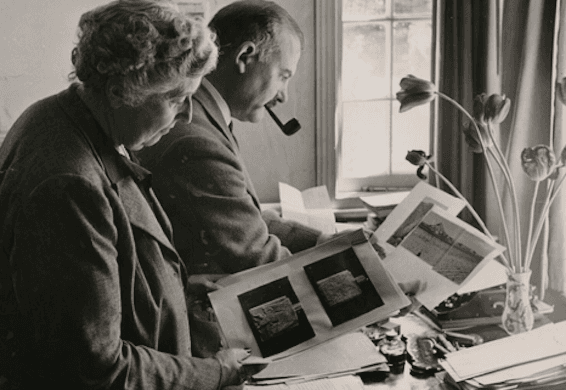Agatha Christie and the Case of the Sensitive Editors
The advent of these sensitivity readers — one publisher refers to them as ‘inclusion ambassadors’ — is a relatively recent phenomenon in the publishing world.

Add Agatha Christie’s name to the growing list of famous authors who have had their work scrubbed of language that might be considered offensive to modern readers by a cadre of “sensitivity readers.”
A report in the U.K.’s Telegraph newspaper said that works by the famous mystery author have been updated to remove references to characters’ ethnicity, especially those that the protagonist encountered outside of the United Kingdom. Among the works censored are the entire Miss Marple series and some of the Poirot novels published since 2020 but written between 1920 and the author’s death in 1976.
The newspaper said many references to ethnicity such as Black, Jewish or Gypsy have been removed from the electronic editions of the books. A judge’s “Indian temper” was excised, as was a reference to a female character’s torso as being “of black marble.” The word “natives” was replaced with the word “locals” in most of the volumes. In the new edition of the 1964 Miss Marple novel, A Caribbean Mystery, a detective’s remark that a hotel worker had “such lovely white teeth” was removed.
News about the edits to Ms. Christie’s work follows reports earlier this month that publishers have been hiring the so-called sensitivity readers to rewrite works by other authors such as the children’s author Roald Dahl and Ian Flemming, author of the iconic James Bond series of spy novels. The advent of these sensitivity readers — Mr. Dahl’s publisher, Puffin, refers to them as “inclusion ambassadors” — is said to be a relatively recent phenomenon in the publishing world.
Following the reports, Mr. Dahl’s publisher said it would continue to use the sensitivity readers but that it would publish older editions of such classics as Charlie and the Chocolate Factory and James and the Giant Peach and call them “Classic” editions. Much of the changes to his works removed references to characters’ physical appearance — such as “fat” or “ugly” — that ostensibly might trigger young readers today. Many references to the gender of specific characters were also removed.
Mr. Fleming’s work was edited to remove many references that could be considered racist or sexist in some circles today. A visit by Mr. Bond to a nightclub in Harlem removed references to an audience “panting and grunting like pigs at a trough” and replaced it with the sentence, “Bond could sense the electric tension in the room.” Mr. Bond’s reference to excessive drinking by African criminals in the gold and diamond trade was deemed racist and removed as well.
Another prominent children’s author, R.L. Stine, complained that a series of politically correct edits to his classic “Goosebumps” series were made by his publisher without his knowledge or consent.
“I have never changed a word in a Goosebumps book,” Mr. Stine tweeted after the Times of London reported finding more than 100 instances in which the text of his books, published in the mid-1990s, was altered. “Any changes were never shown to me.”

